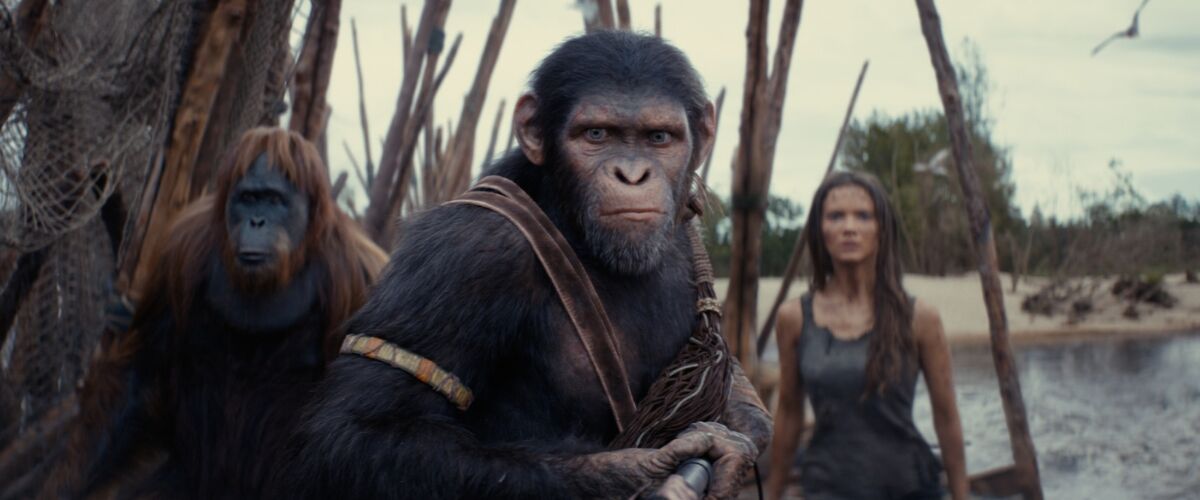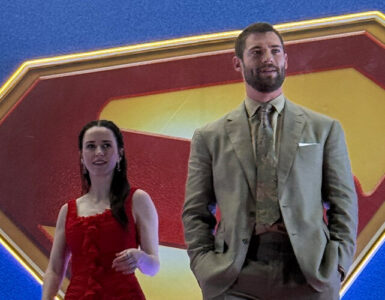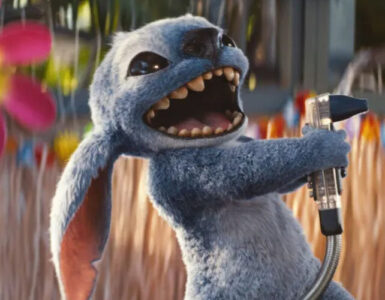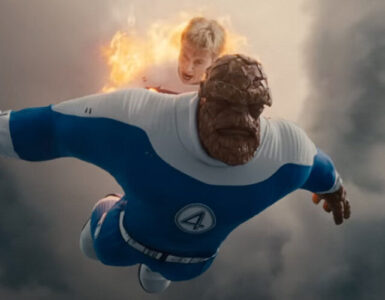This interview has been edited for clarity.
The iconography of a popular franchise can change over the years, from the deerstalker cap and pipe of Sherlock Holmes that no longer holds much meaning in modern times, to that of Planet of the Apes, where it was once Charlton Heston’s George Taylor dramatically cursing humanity on a beach in 1968’s Planet of the Apes film (Remember “You maniacs! You blew it up! Damn you! Goddamn you all to hell!”, anybody?).
Today, the adaptation of French author Pierre Boulle’s 1963 novel, La Planète des singes, has evolved into a massive film franchise, and audiences are more likely to recognise Caesar, the intelligent chimpanzee brought to life via groundbreaking motion-capture (mocap) technology by mocap legend Andy Serkis, whose portrayal in the recent trilogy redefined the franchise, leaving audiences captivated by Caesar’s struggle for ape equality and eventual rise as a leader.
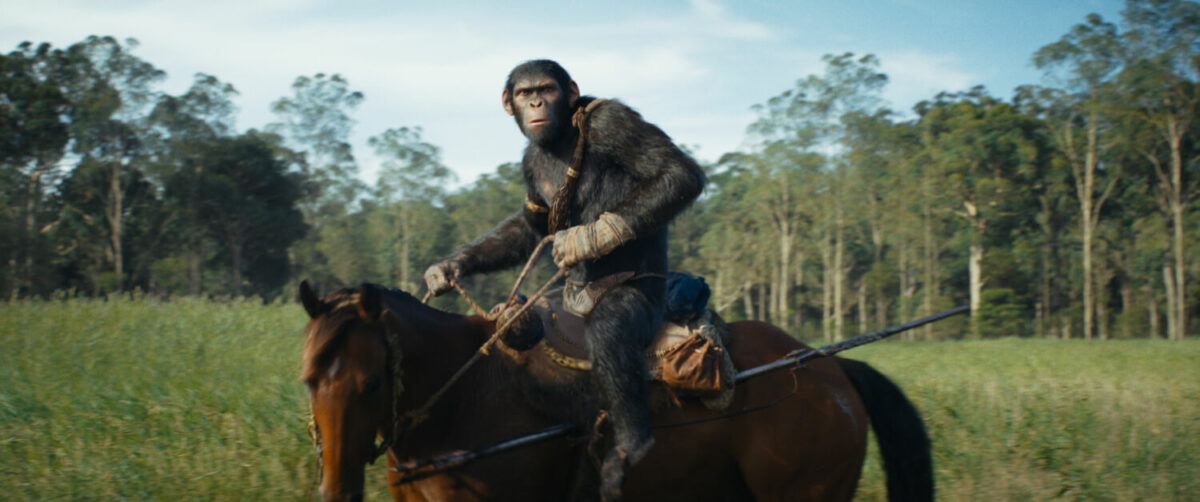
But as the Planet of the Apes universe continues to evolve with 20th Century Studios’ latest chapter, Kingdom of the Planet of the Apes, which is set 300 years after Caeser’s story, how can director Wes Ball draw connections to the past with his continuing tale about leadership, legacy, and coexistence?
Well, at the heart of this new narrative is Owen Teague’s (It, Bloodline) character, the chimpanzee Noa, whose journey is pivotal in the interwoven stories of legacy and identity that bear a striking resemblance to Caesar’s path. In a Geek Culture-exclusive interview with stars Kevin Durand (Locke & Key, Abigail), who plays the tyrannical bonobo ape leader Proximus Caesar, and Peter Macon (The Orville, Shameless), the morally steadfast orangutan Raka, both actors point to Teague as the connection, both on and off camera.
“Owen is part chimpanzee, yeah,” Durand joked, emphasising the natural affinity Teague had for his role. “Walking into this part, he just has a way of moving that really resonates. The director said that when he saw the audition, he knew Owen was already there.”
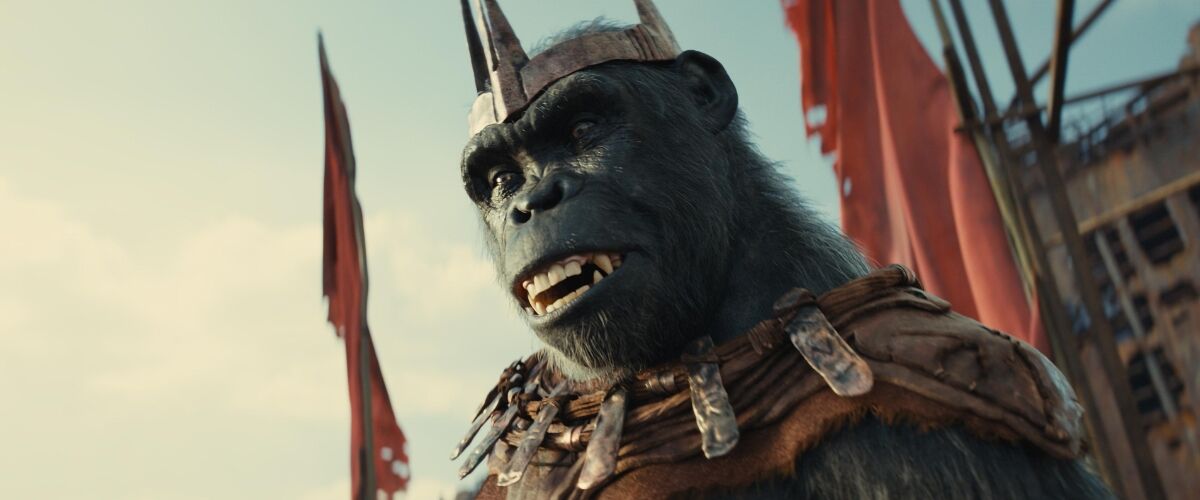
Unlike the seasoned actors, Teague seemed to embody the ape-like physicality innately.
“The rest of us,” Durand admitted, “benefited extremely from having an ape school and rehearsal time to figure out how to make our human bodies more ape-like, but some of us [Teague] are more ape than others.”
This ‘ape school’ isn’t your typical classroom either as the cast trained under Andy Serkis, the ape-motion-capture pioneer from the previous trilogy. A calming influence for the motion-capture newbies, Serkis guided them to embrace their ape bodies and learn from each other’s movements. This collaboration helped them discover subtle ape nuances that enhanced their performances.
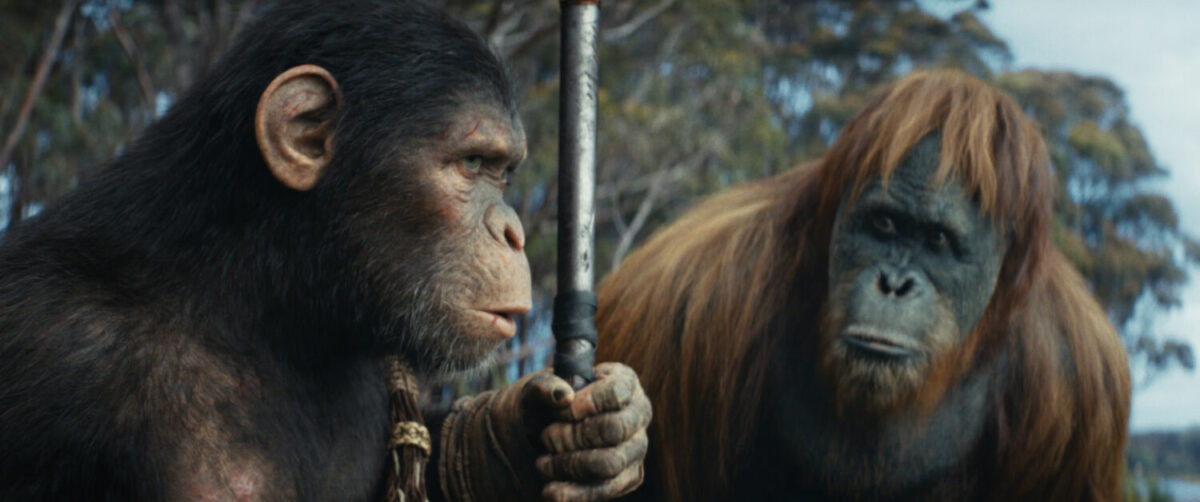
Macon echoed Durand’s sentiment, highlighting Teague’s unwavering commitment. “He was literally in every print, in every scene, and he was always available,” he noted.
“There were times when I was trying to figure out my ape identity and ape physicality, or my ape-ness, and all I had to do was hang out with Owen. He was always Noa.”
This dedication wasn’t just for show as Teague also physically changed.
“His pants no longer fit because he spent so much time in that crouch as a chimpanzee that his legs and his gluteus maximus maximised to a point where he had to get new pants. That’s how much he was crouching,” Durand revealed with a laugh. “We were all inspired by him and his commitment, and we were happy to follow his lead.”
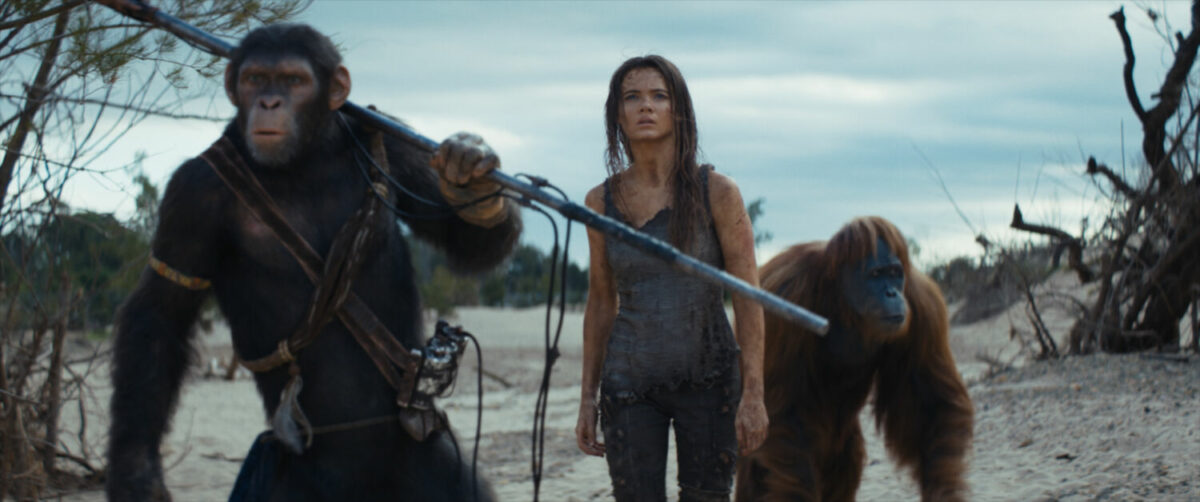
Kingdom of the Planet of the Apes delves into a world transformed. Long after the events of the previous films, apes have become the dominant species, building their own societies, while humans struggle to survive in a primitive state. At the heart of this new era is Noa, a young ape played by Owen Teague. Driven by a desire for freedom and a sense of destiny, Noa embarks on a dangerous journey that will not only test his own limits but could potentially change the future for both apes and humans. His path intersects with Mae (also known as Nova), a mysterious human girl portrayed by Freya Allan (The Witcher), who holds her own secrets.
Drawing parallels to the beloved Caesar, both actors acknowledged the influence of Serkis’ legendary performance. When asked if Teague’s leadership reminded them of Caesar, they responded in unison, “Like a young Caesar, yeah! Very much so.”
“He would go and transpose all of the script, the scenes, with sign language and bring it to set fluently,” Macon continued. “He was our leader. All things ape-filtered through Owen Teague.”
This comparison to Caesar is no mere coincidence. Kingdom of the Planet of the Apes takes place three centuries after Caesar’s time, but his legacy continues to loom large.
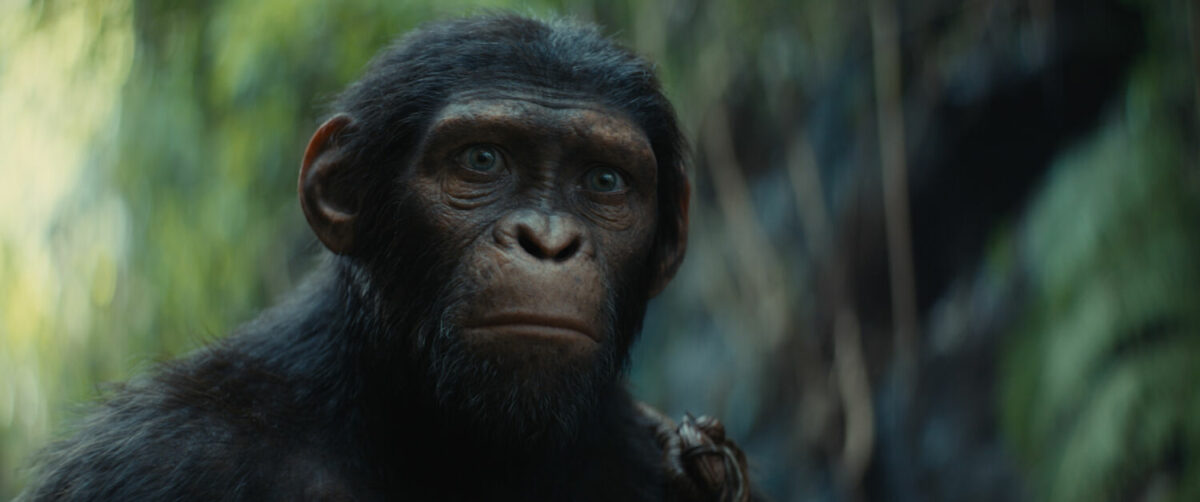
Macon, a self-proclaimed fan of the recent trilogy, explained, “The work that Andy Serkis and the rest of the cast, like Toby Kebbell (who played antagonist Koba in the previous Planet of the Apes films) did give me so much to work with, not just from the point of view of the apes, but from the downfall of the humans, to watch the humans get lesser and lesser, and doing themselves in.”
He continued, “It really helped me let my imagination run wild and build the connective tissue between those generations, because it’s 300 years later.”
Durand, on the other hand, drew inspiration from the franchise’s very beginning in the 1960s. “The ape behaviour started back when I was six,” he confessed. “I was fascinated by the original films. It was wonderful to be able to disappear into my imagination and in my head believe that I was an ape. I’ve been doing it pretty much my whole life, so it’s such an honour to get to be a part of this lineage.”

